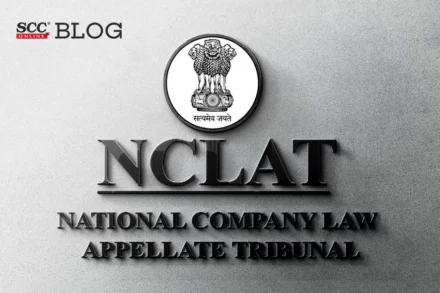
CIRP


NCLT admits Go Air insolvency plea
A creditor has limited grounds to object to S. 10 of IBC application.

NCLT imposes exemplary cost of ₹ 5 Lakhs on Trimex Industries (P) Ltd for filing frivolous litigation
NCLT imposed cost to restain Trimex Industries (P) Ltd. from filing frivolous applications which consume Tribunal’s valuable resources and time.
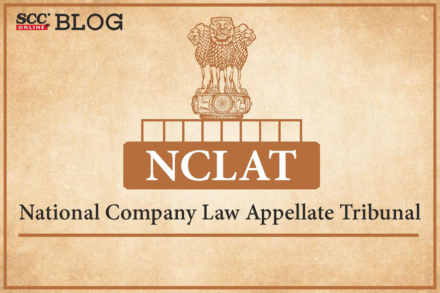
Intent of Corporate Debtor irrelevant in establishing existence of preferential transaction: NCLAT
There is no need to prove any fraudulent intent for a preferential transaction as per S. 43 of the IBC.
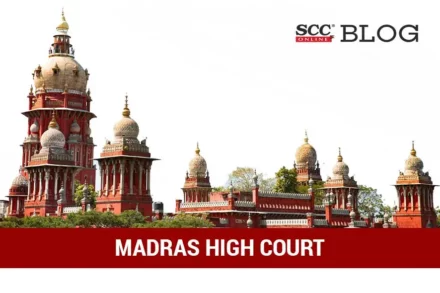
Approaching police without resorting to special procedure under IB Code to arm twist the Resolution Professional is inappropriate: Madras High Court
Madras High Court said that there is no reason why the complaint was not filed either before IBBI or NCLT for the alleged fraud.

To reject application under Sec. 9 IBC, a genuine pre-existing dispute must exist: NCLAT
The National Company Law Appellate Tribunal held that no pre-existing dispute regarding quality of supplied goods exist as the same was not raised before consumption of the goods.
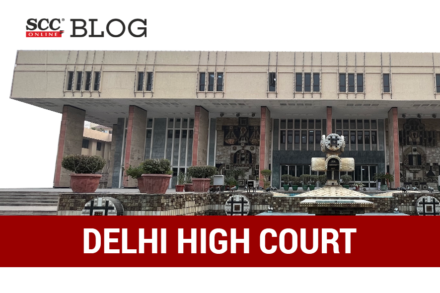
Delhi High Court changes the status of Look Out Circular; directs immigration authorities to inform SFIO about former Director of Techpro Systems Limited arrival and departure
The Court opined that the present case would fall under the Office Memorandum which stated that “where there is no cognizable offence under IPC and other penal laws, the LOC subject cannot be detained/arrested or prevented from leaving the country.”
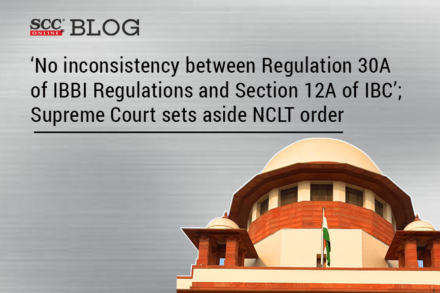
‘No inconsistency between Regulation 30-A of IBBI Regulations and Section 12-A of IBC’; Supreme Court sets aside NCLT order
Supreme Court clarified that the substituted Regulation 30-A of IBBI Regulations clearly provided for withdrawal applications being entertained before constitution of Committee of Creditors.

[Reliance Capital (RCap) Resolution] CoC has power to negotiate and call for higher bid; NCLAT allows another round of bidding
The NCLAT held that even after completion of challenge mechanism under CIRP Regulation 39(1A)(b), the CoC retains its jurisdiction to negotiate with one or other Resolution Applicants, or to annul the Resolution Process and embark on to re-issue RFRP.

Do Third-party/shareholders have locus to challenge initiation of CIRP against Corporate Debtor? NCLAT answers
The NCLAT held that there is no law which allows a third party or shareholders to settle the claims of Financial Creditor on behalf of the Corporate Debtor, M/s McDowell Holdings Limited.

Advance paid for purchase of shares of Corporate Debtor does not fall under definition of Financial Debt: NCLT
NCLT held that the amount of advance paid for purchase of shares of the Corporate Debtor does not fall under the definition of Financial Debt as it was not disbursed against the consideration for the time value of money.

Once Resolution Plan approved and submitted to Adjudicating Authority, it cannot be sent back for re-consideration: NCLAT
In matter related to reconsideration of Resolution Plan after approval, NCLAT held that thought the object of the CIRP is maximisation of value of the Corporate Debtor, but the said maximisation must be achieved within the timeline provided in the scheme.

NCLAT provides time-bound opportunity to Resolution Professional and CoC to revive Corporate Debtor
In a case related to rejection of Resolution Plan by the Adjudicating Authority, which was once approve the Adjudicating Authority, the Tribunal opined that the Adjudicating Authority was right on non-approval of the Resolution Plan as the Adjudicating Authority’s order was not followed in its true spirit.

NCLAT stays Insolvency proceeding against Zee Entertainment Enterprise Ltd
The NCLAT granted interim relief to Zee Entertainment Enterprises Ltd (ZEEL) by staying bankruptcy proceedings against them, after the NCLT admitted S. 7 application and directed the initiation of CIRP against the Corporate Debtor/ZEEL.

In what circumstances and conditions, Adjudicating Authority can send back a Resolution Plan to CoC for carrying out changes? NCLAT Answers
In the instant matter an appeal was preferred before NCLAT challenging the order of the Adjudicating Authority remitting a Resolution Plan back to the CoC for reconsideration in accordance with law.
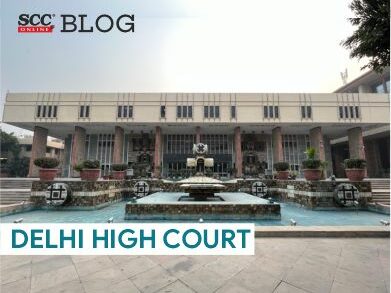
[IBC] Statutory authorities chose not to submit their proof of claim; Delhi High Court quashes show cause issued by Directorate of Revenue Intelligence
In the instant case, the Directorate of Revenue Intelligence neither submitted proof of claim nor responded to a specific communication via an e-mail addressed to Senior Intelligence Officer. This is a case where despite knowledge, the statutory authorities chose not to submit their proof of claim.
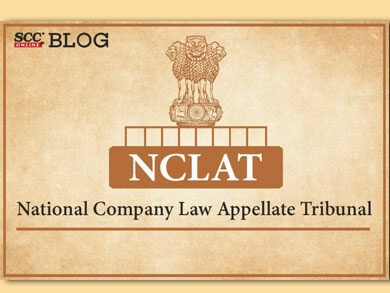
Debt and default are sine qua non and only condition for admitting S. 7 IBC application: NCLAT
While hearing an appeal challenging an impugned order passed by the Adjudicating Authority dismissing a S. 7 IBC application on the ground that the appellant was not able to establish debt and default, the Tribunal held that it is clear from the facts and circumstances the definition of debt and default is rightly established by the appellant and the Adjudicating Authority has committed a patent error while passing the impugned order.
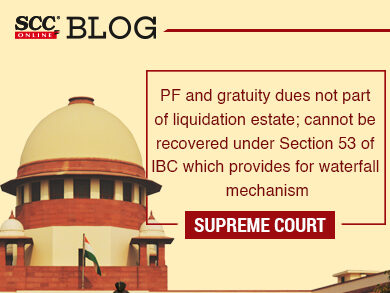
PF and gratuity dues not part of liquidation estate; cannot be recovered under Section 53 of IBC which provides for waterfall mechanism: Supreme Court
Supreme Court upheld the NCLT order that the provident fund, pension fund and gratuity fund are not part of the liquidation estate, for distribution under Section 53 of the IBC and the same has to be paid to the employees under the stated heads.

NCLT| A mistake in demand notice does not make an application defective unless some prejudice is suffered resulting from such mistake
While deciding the present matter dealing with mistake in demand notice, NCLT held that “the Corporate Debtor has not and would not be prejudiced by fact that Operational Creditor has mentioned the wrong date of default due to its inadvertence.”

Nature of Financial Debt does not change on account of breach of consent terms | NCLAT
While upholding the NCLT’s order of admission of fresh application and initiation of CIRP against the Corporate Debtor, the Tribunal held that the nature of financial debt would not change on account of breach of the consent terms.

